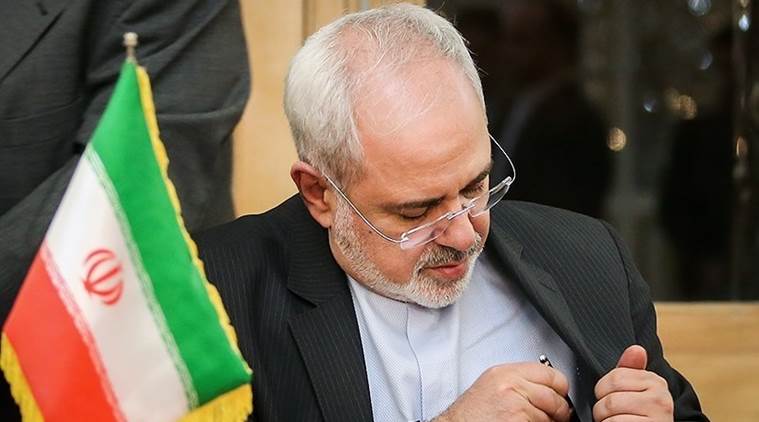Resignation of Iran’s FM Javad Zarif is setback for reforms in the Islamic republic
The resignation of Iran’s foreign minister, Javad Zarif, is a setback for reforms in the Islamic republic

The resignation of Javad Zarif, Iran’s foreign minister, last week came as a big surprise to analysts and observers of Iranian politics. Whatever the reasons behind Zarif’s resignation, he will be remembered as one of the architects of the nuclear deal of 2015. Though Zarif’s resignation was rejected by President Hassan Rouhani, the fact that it happened during the visit of the Syrian president to Iran is considered as a big victory for the Iranian hardliners. The message seems clear: Zarif’s moderate diplomacy failed, whereas General Qasem Soleimani’s tough intervention in Syria has been triumphant.
Undoubtedly, the Trump administration’s withdrawal from the Joint Comprehensive Plan of Action (JCPOA) and the re-imposition of US sanctions on Iran also had a role in Zarif’s resignation. Washington continues to warn Tehran against its use of ballistic missile technology. However, Iran unveiled a new cruise missile with a range of 1,300 km during the celebrations of the Islamic revolution in February.
Iran’s oil exports are dropping drastically under pressure from US sanctions. Political tension between Iran and Germany is at its peak due to suspected Iranian espionage activities in the latter. The Dutch government, meanwhile, has put out secret service documents concerning Iran’s alleged involvement in the murder of two Dutch nationals of Iranian origin in 2015 and 2017. Besides, Denmark recently accused Iran of plotting to kill a member of an Ahvazi opposition group, which Tehran blames for an attack in Iran that killed 25 people last September.
The tensions with Europe spell bad news for Iran. Tehran’s trade with the European Union fell by 66 per cent between November 2017 and November 2018. According to Ali Akbar Salehi, the head of Atomic Energy Organisation of Iran, China has slowed down its efforts at redesigning Iran’s Arak heavy water reactor as required by the JCPOA. This does not come as a surprise since Chinese exports to Iran have collapsed by 70 per cent, from about $1.2 billion in October 2018 to just $391 million in December 2018. This suggests that China may be abandoning the policy of sustaining trade with Iran in direct contravention of US sanctions, which presents both economic and political risks. A change in Beijing’s trade policy toward the Islamic republic will contribute to layoffs across Iran in the coming months.
The US on January 24 imposed sanctions on four organisations which it said were tied to either Iran’s Revolutionary Guard’s Quds Force or blacklisted Iranian airline Mahan Air. In order to fortify this measure, President Donald Trump put the Europeans on alert, saying if they try to do an end-run around US sanctions they will be subjected to stiff fines and penalties. However, the Trump administration has concerns about the alternative payment system put together by the European Union to compete with the international bank transfer system, SWIFT. Though the Europeans have signaled that the alternative money transfer system would be used only for humanitarian transactions with Iran, the US is suspicious that it could also be used for trade transactions to evade sanctions.
European officials see the trans-Atlantic rift over Iran sanctions as a significant crisis for the European economy, which can be avoided if the EU is able to counterbalance US economic power and the primacy of the dollar in international finance. In December, the European Commission released a report, ‘Towards a Stronger International Role of the Euro’, which underlined the sanctions on Iran and as a key justification for strengthening the role of the euro in global trade and finance. Germany, France and Britain have already launched their own payment channel to help European companies bypass US sanctions on Iran. The channel — INSTEX (Instrument in Support of Trade Exchanges) — is meant to facilitate legitimate trade with Iran and persuade the leaders in Tehran to continue fulfilling their commitments to the nuclear deal.










.png)




























No hay comentarios:
Publicar un comentario